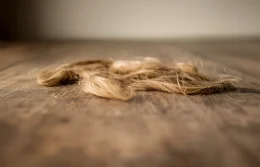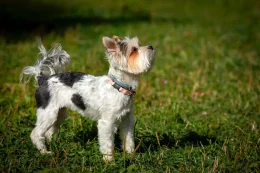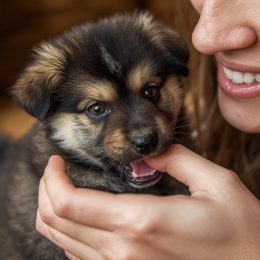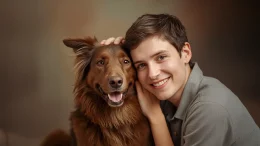
- Home
- Owning a Dog
- Puppy Breath: Why It Happens and How Long It Lasts
Puppy Breath: Why It Happens and How Long It Lasts
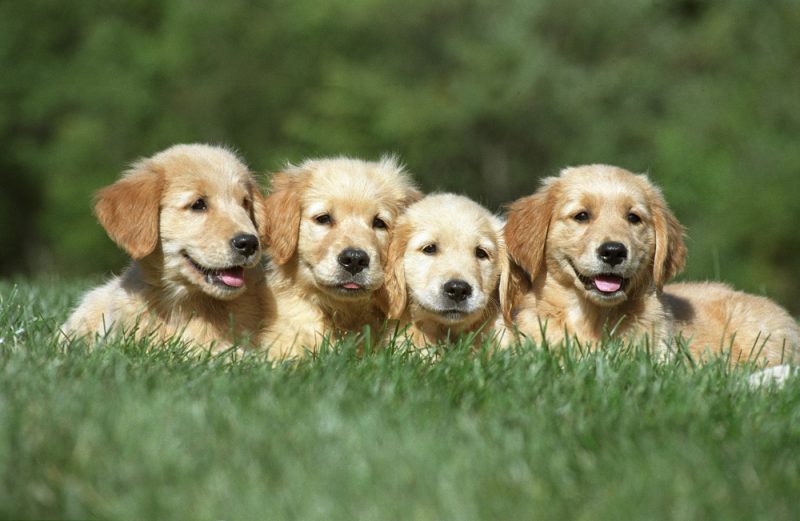
There’s something unmistakably sweet (and oddly comforting) about puppy breath. It’s one of those fleeting parts of puppyhood that many dog lovers adore—and miss once it’s gone. But have you ever wondered what actually causes that signature scent, how long it lasts, or whether it’s a sign of good health?
In this blog, we’ll break down the science behind puppy breath, when it changes, and how to ensure your puppy’s mouth stays healthy as they grow.
What Exactly Is Puppy Breath?
Puppy breath is often described as a slightly sweet, milky, or “fresh” smell. It’s unique to young puppies and usually vanishes by the time they reach six months of age. While it might seem like a random quirk, puppy breath actually comes down to a mix of diet, biology, and oral development.
The Main Causes of Puppy Breath
🍼 1. Milk-Based Diet
In the early weeks of life, puppies feed exclusively on their mother’s milk (or a specially formulated puppy milk replacer). This nutrient-dense liquid is high in fats and proteins, which are broken down by enzymes in the digestive system. These enzymes, along with mild fermentation, can create that gentle, sweet smell on their breath.
😬 2. Lack of Oral Bacteria
Puppies are born with relatively clean mouths. Unlike adult dogs—who accumulate plaque and bacteria over time—puppies haven’t had the exposure or time to develop significant bacterial colonies. The absence of odour-causing bacteria is part of what gives their breath that ‘clean’ smell.
🧬 3. Immature Digestive System
Because a puppy’s entire system is still developing, their gut microbiome is quite different from that of an adult dog. This unique mix of gut flora may also contribute to the scent you pick up when they yawn or lick you.
When Puppy Breath Starts (and Ends)
Puppy breath begins in those very early weeks, but the timeframe can vary depending on the individual dog, their diet, and how early they start teething or solids.
- Newborn to 6 weeks: Breath is usually at its sweetest here—especially for puppies exclusively on milk.
- 6 to 12 weeks: As they begin to wean onto solids, the milk smell gradually fades. This is also when baby teeth are erupting, which can bring about new mouth odours.
- 3 to 6 months: Most puppies begin teething in earnest. You may notice changes in breath here—sometimes less pleasant ones—due to sore gums, lost teeth, or inflammation.
- 6+ months: Once adult teeth are fully in and your puppy is eating a varied diet, any traces of the original “puppy breath” are usually gone.
Teething and Breath Changes
It’s common for puppies to have less pleasant breath during the teething phase. This can be due to:
- Bleeding gums from tooth eruption
- Food getting trapped around baby or emerging adult teeth
- Infection or inflammation if baby teeth aren’t falling out properly
Keeping your puppy’s mouth clean and offering safe teething chews (like chilled carrot sticks or frozen Kong toys) can help reduce inflammation and odour.
If you’re unsure how to support your teething puppy, check out our Puppy Teething Guide on the Jordan Dog Training blog.
When Bad Breath Is a Red Flag
While standard puppy breath is nothing to worry about, strong or unpleasant odours—especially metallic, sour, or fishy smells—could indicate a problem. Be on the lookout for:
- Red, swollen, or bleeding gums
- Excessive drooling
- Pawing at the mouth
- Difficulty eating or chewing
- Bad breath that persists beyond teething
These symptoms may suggest retained baby teeth, a tooth root abscess, or other issues that should be assessed by your vet. In rare cases, foul-smelling breath in puppies can be linked to metabolic or systemic conditions, like kidney or liver disease.
Setting Up a Lifetime of Fresh Breath
The best way to keep your puppy’s mouth healthy—and their breath as fresh as possible—is to introduce good dental habits from the start. Early exposure helps prevent dental disease, which is one of the most common health issues in adult dogs.
🔹 Tips for Good Canine Oral Hygiene:
- Start brushing early using a dog-safe toothpaste and soft brush.
- Get your puppy comfortable with mouth handling during training.
- Provide natural dental chews and toys to reduce plaque build-up.
- Feed a balanced, species-appropriate diet.
- Schedule regular vet check-ups.
- Avoid chews that are too hard (like cooked bones or antlers), which can damage growing teeth.
We stock a wide range of natural, healthy treats and chews in the Jordan Dog Training online store that support dental and behavioural enrichment.
Final Thoughts
Puppy breath is just one of the many short-lived (but charming) parts of raising a young dog. While it won’t last forever, it’s a great reminder to enjoy the early stages—teething challenges and all!
By keeping up with oral hygiene, being mindful of changes, and working with your vet and trainer, you’ll help your puppy grow into a healthy adult with good dental habits for life.
If you’re raising a puppy and want expert guidance, our team of qualified dog trainers and behaviourists are here to support you. We offer puppy schools across Brisbane, as well as in-home training to help you get the best start possible with your new pup.
Disclaimer: The information provided in this blog is intended as general guidance and is based on our experience as dog trainers and behaviourists. It is not veterinary advice and should not replace consultation with a qualified veterinarian. If you have any concerns about your dog’s health, wellbeing, or mobility, we always recommend speaking with your vet to ensure the best care for your dog.

Justin Jordan
Master Trainer
- In-home behaviour modification consultations
- Puppy schools
- Obedience classes
- Specialist training
- Media enquiries
- Trainer opportunities
- Supplier enquiries
- Guest appearances











